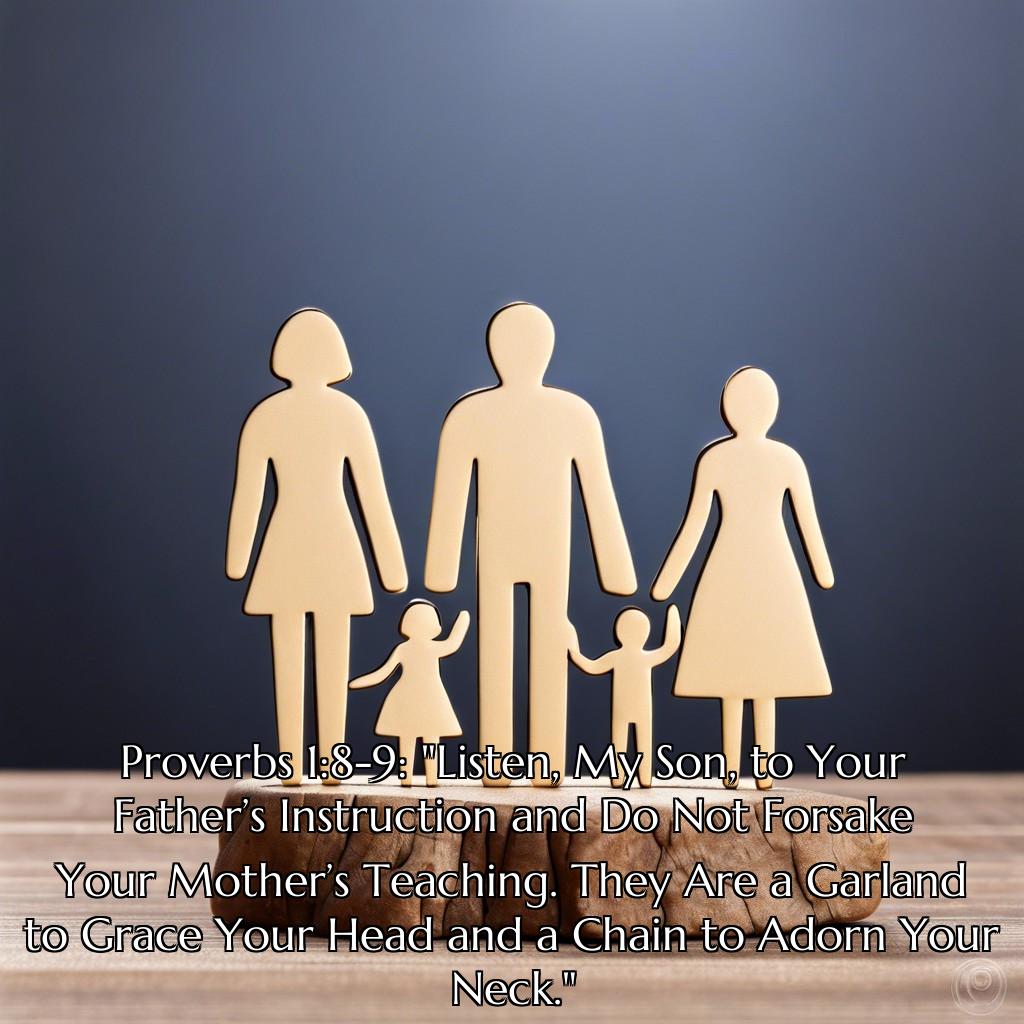Discover what the Bible says about family unity through these inspiring verses that emphasize love, support, and togetherness.
Family unity is a recurring theme in the Bible, offering wisdom and guidance on how to nurture and strengthen bonds with our loved ones. Discovering these verses helps illuminate the principles of love, forgiveness, harmony, and compassion, essential for fostering a close-knit family. Let’s delve into these powerful scriptures that reveal God’s vision for unity within our households.
Ephesians 4:3: “Make Every Effort to Keep the Unity of the Spirit Through the Bond of Peace.”

Unity within the family is a core biblical principle. In Ephesians 4:3, we are urged to make every effort to maintain this unity through peace. Here are some core ideas behind this verse:
First, unity requires effort. It’s not a passive act but an active, ongoing challenge. Engage in regular communication with family members to foster understanding.
Second, peace is the bond that holds unity together. Avoid arguments and resolve conflicts quickly. Peaceful discussions can lead to stronger family ties.
Third, unity is a spiritual endeavor. Pray together as a family. Spiritual practices can create a strong sense of togetherness.
Finally, peace and unity should be consistent goals. They aren’t achieved once and forgotten but should be maintained daily. Make unity a habit.
Colossians 3:13-14: “Bear With Each Other and Forgive One Another If Any of You Has a Grievance Against Someone. Forgive As the Lord Forgave You. And Over All These Virtues Put On Love, Which Binds Them All Together in Perfect Unity.”

Understanding family unity involves recognizing the importance of forgiveness and love. This passage urges us to:
Accept each other’s faults. Imperfection is part of being human; bearing with one another fosters patience.
Exercise forgiveness. Holding onto grievances strains relationships. Forgiving as the Lord forgave us reflects divine grace in our interactions.
Embrace love. Love is the essential virtue that holds all others together, creating a cohesive and harmonious family environment.
Together, bearing, forgiving, and loving can transform how we relate to each other, promoting a peaceful and unified family life.
Psalm 133:1: “How Good and Pleasant It Is When God’s People Live Together in Unity!”

Unity within a family can bring immense joy and peace. This verse celebrates the harmony and mutual understanding that make living together a true blessing.
First, unity is described as both good and pleasant, indicating it benefits everyone involved while fostering an enjoyable atmosphere.
Second, living together harmoniously reflects God’s desire for His people to be in sync, working towards common goals.
Finally, it emphasizes the importance of community, reinforcing that family should be a haven of love and cooperation.
Promoting these values can transform family life, aligning it with divine intentions for human relationships.
Romans 12:16: “Live in Harmony With One Another. Do Not Be Proud, but Be Willing to Associate With People of Low Position. Do Not Be Conceited.”

Paul’s encouragement to live in harmony reminds us of the importance of peace within our families. Harmony requires humility. Pride can disrupt unity, causing friction and misunderstanding.
We are called to associate with everyone, regardless of status. This means treating every family member with equal love and respect. Avoiding conceit helps to foster an atmosphere where everyone feels valued and heard.
- Key points to remember:
- Humility is essential for harmony.
- Show respect to all family members, regardless of their position.
- Avoid pride and conceit to maintain peace within the family.
These principles help create a family environment where harmony and unity thrive, laying a solid foundation for strong relationships.
1 Corinthians 1:10: “I Appeal to You, Brothers and Sisters, in the Name of Our Lord Jesus Christ, That All of You Agree With One Another in What You Say and That There Be No Divisions Among You, but That You Be Perfectly United in Mind and Thought.”

Paul’s appeal to the Corinthians is a heartfelt call for unity. First, he emphasizes agreement in speech. This means fostering a culture where family members communicate openly and constructively. Differences don’t need to lead to divisions, but should be discussed with the goal of finding common ground.
Next, Paul urges against divisions. In a family, this translates to actively working against cliques, favoritism, and grudges. Everyone should feel valued and heard, creating an environment of mutual respect.
Finally, unity in mind and thought involves shared goals and values. Families thrive when they work together towards common objectives, whether spiritual, emotional, or practical.
In essence, Paul’s message is clear: unity is not just about avoiding fights but actively building an atmosphere of love, cooperation, and mutual support.
1 Peter 3:8: “Finally, All of You, Be Like-minded, Be Sympathetic, Love One Another, Be Compassionate and Humble.”

This verse encourages family unity through several key virtues:
Being like-minded: Strive for harmony by embracing common values and objectives. Shared beliefs foster a strong bond.
Being sympathetic: Show understanding and share in each other’s joys and sorrows. Empathy creates a supportive environment.
Loving one another: Prioritize love, which acts as the glue holding the family together. Love generates mutual respect and care.
Being compassionate: Demonstrate kindness and a willingness to help each other. Compassion nurtures a nurturing atmosphere.
Being humble: Let go of pride and approach each other with humility. Humility allows for open communication and resolves conflicts peacefully.
Incorporating these virtues can significantly enhance family unity, making home a place of peace and support.
Philippians 2:2: “Then Make My Joy Complete By Being Like-minded, Having the Same Love, Being One in Spirit and of One Mind.”

Paul’s encouragement here is clear. He desires believers to be united in heart and purpose. This unity brings joy and shows the world the transformative power of love.
- Being like-minded promotes harmony. It means understanding and respecting others’ perspectives even when you disagree.
- The same love refers to Christ-like love. This love is selfless, unconditional, and puts others first.
- One in spirit means being connected at a deeper level. It’s about shared values and a commitment to God’s purposes.
- Of one mind ensures a common goal. When families are united in their objectives, they are stronger and more resilient.
Achieving this unity isn’t always easy, but the effort is worth it. Cultivate patience, embrace empathy, and prioritize communication to maintain this bond.
John 17:21: “That All of Them May Be One, Father, Just As You Are in Me and I Am in You. May They Also Be in Us So That the World May Believe That You Have Sent Me.”

This verse highlights Jesus’ prayer for unity among believers. He expresses a desire for His followers to experience oneness similar to His relationship with the Father.
- This profound unity is:
- Rooted in divine relationship: Just as the Father and Son are inseparable, families are called to reflect this intimacy.
- A testimony to the world: Unified families serve as a powerful witness to others of God’s love and His sending of Jesus.
- Inclusive of divine presence: Christ’s prayer invites families to dwell in unity with God, fostering a spiritual bond beyond human capabilities.
Embracing these principles fosters a sense of belonging and spiritual cohesiveness within families, creating a testimony of God’s presence in their lives.
Galatians 3:28: “There Is Neither Jew nor Gentile, Neither Slave nor Free, nor Is There Male and Female, for You Are All One in Christ Jesus.”

This verse emphasizes equality and unity within the Christian family.
- Elimination of divides: In Christ, traditional boundaries like ethnicity, social status, and gender dissolve. Everyone is equal.
- Unified identity: Believers are seen as one collective body, which fosters family unity.
- Breaking societal norms: The values of the world often create divisions. This verse encourages breaking those for a harmonious co-existence.
- Unity through faith: Faith in Christ serves as the unifying factor, creating a bond that transcends earthly distinctions.
These points highlight that in the spiritual family, everyone is united and equal, which is foundational for family harmony.
1 Thessalonians 5:11: “Therefore Encourage One Another and Build Each Other Up, Just As in Fact You Are Doing.”

Encouragement is foundational in family unity. This verse highlights the importance of uplifting one another in our daily lives. It’s not just about offering kind words but also about fostering a supportive environment where each member feels valued.
Building each other up involves recognizing strengths and helping to overcome weaknesses. Constructive feedback and genuine praise can boost confidence and morale. It’s about creating a culture of growth and support.
Simple acts, like listening actively and showing appreciation, go a long way. Celebrating achievements, no matter how small, reinforces positive behavior and shows that everyone’s efforts are acknowledged.
Being consistent in encouragement builds trust and unity. Families grow stronger when everyone feels supported and motivated to be their best selves. This mutual upliftment forms an unbreakable bond, deeply rooted in love and understanding.





